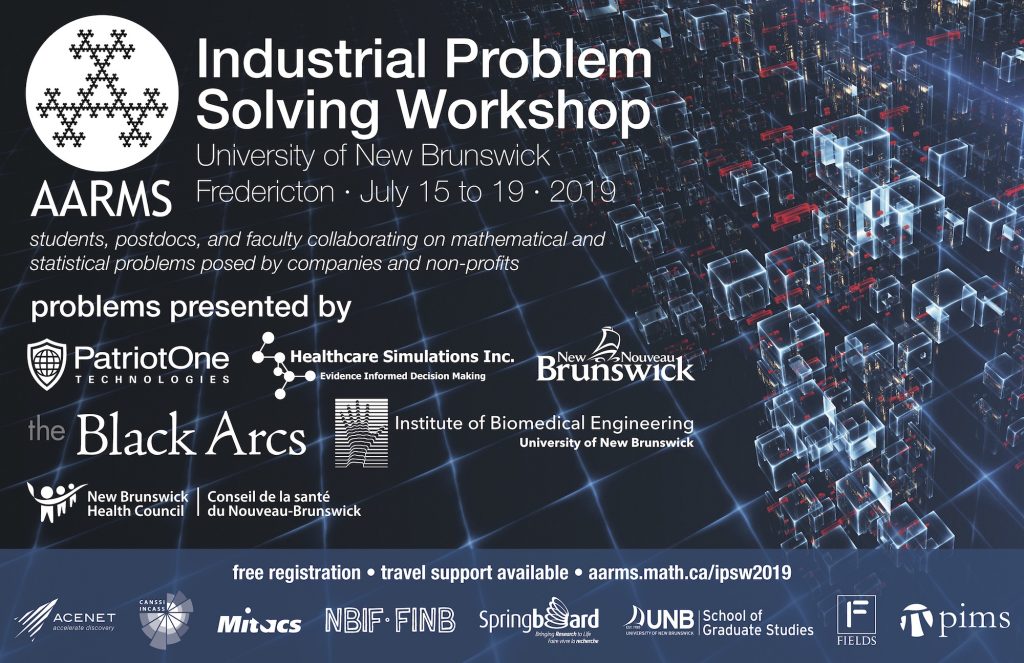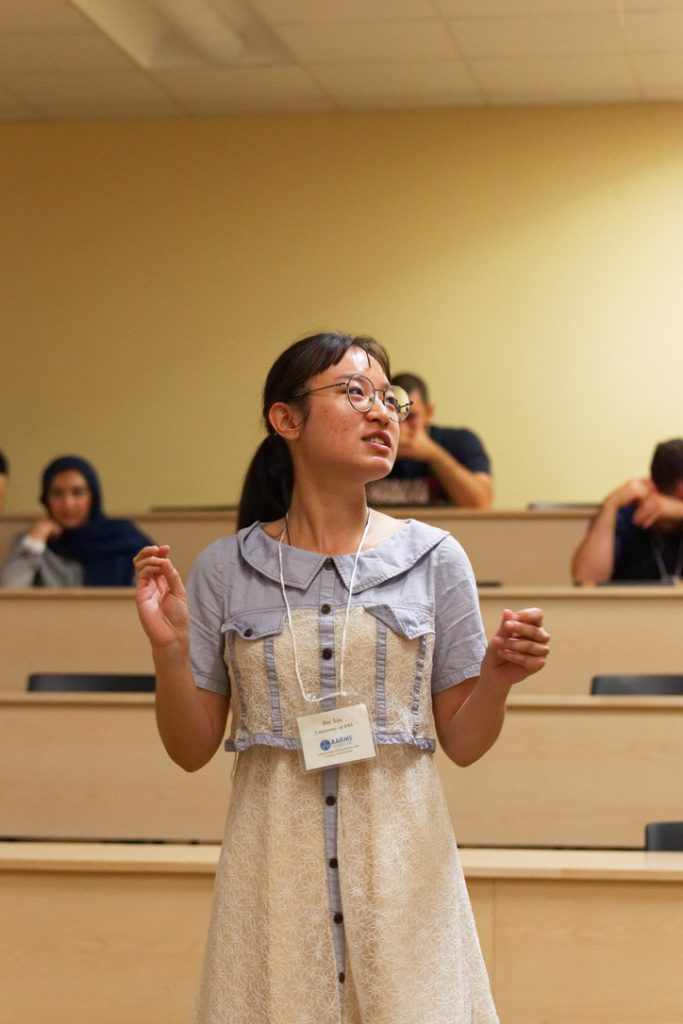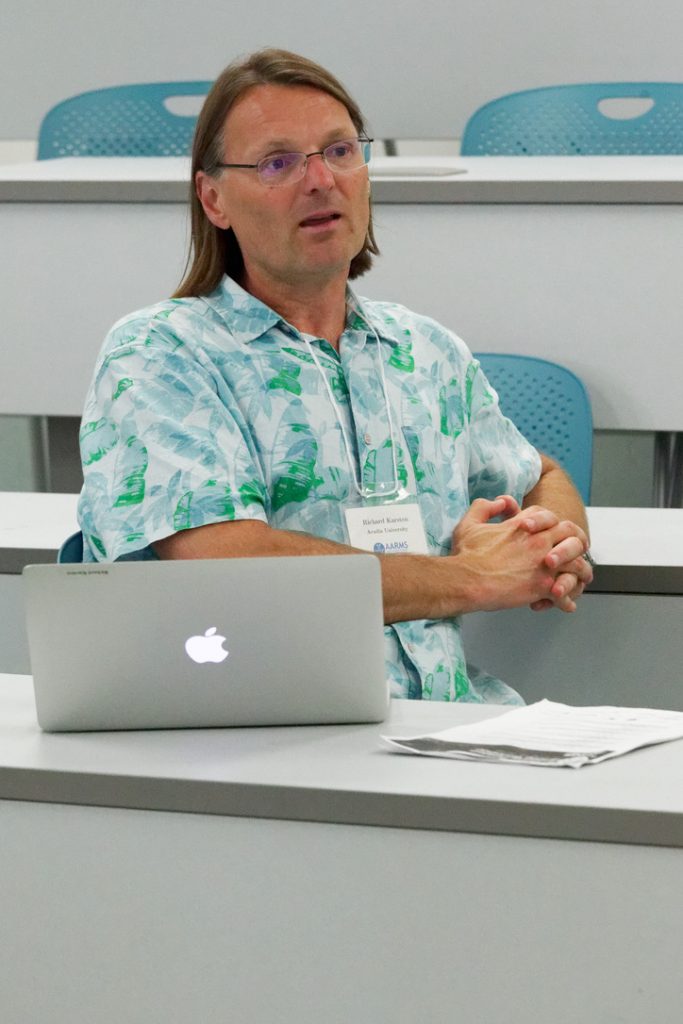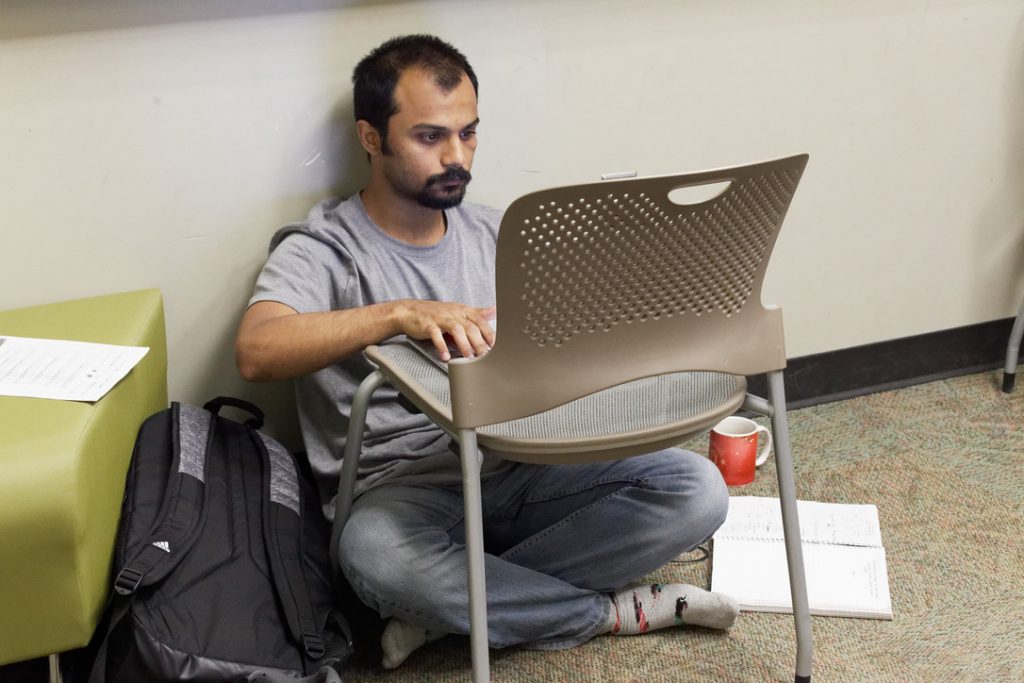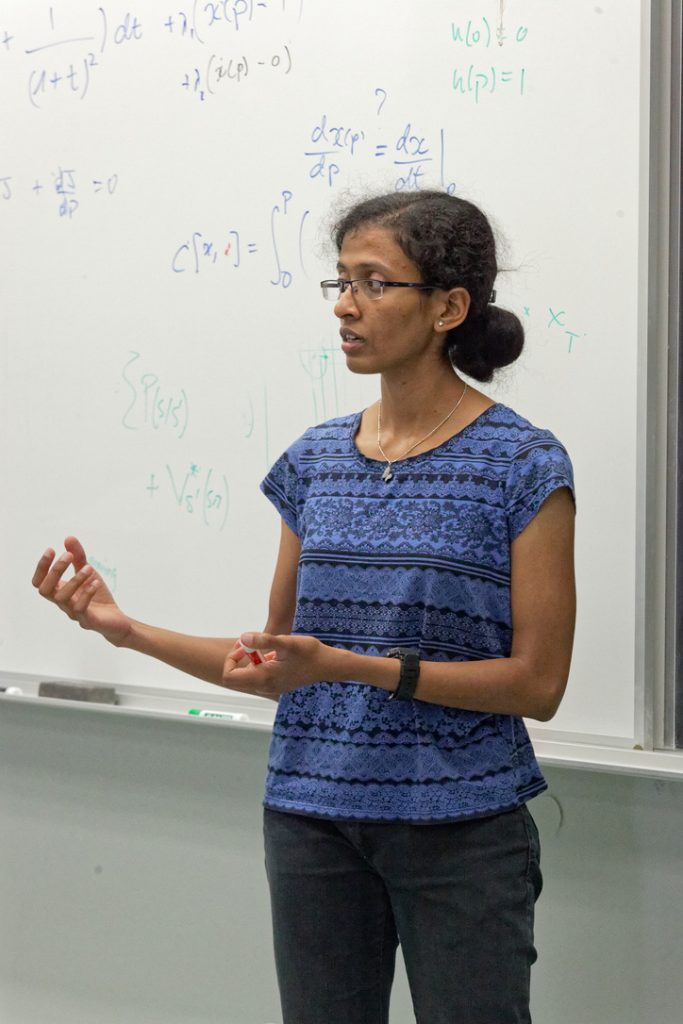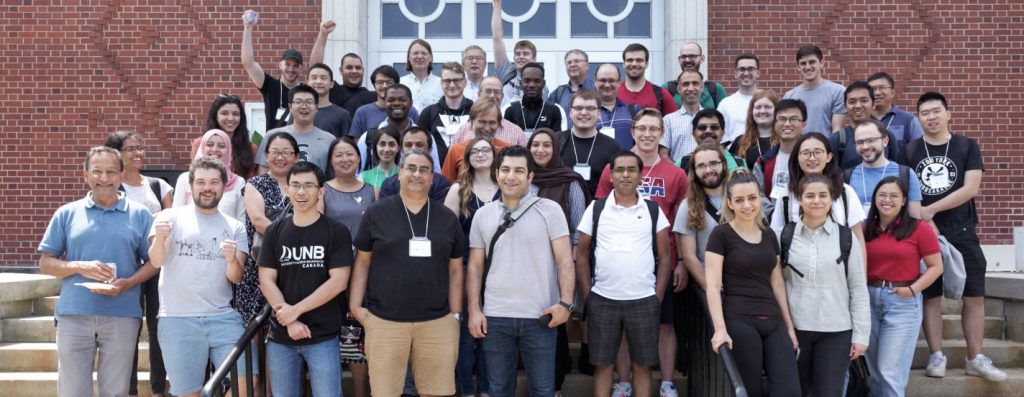
AARMS held its second ever Industrial Problem Solving Workshop (IPSW) from July 15-19, 2019 at the University of New Brunswick‘s Fredericton campus. This year’s workshop was attended by 64 participants including nearly 40 students, 12 faculty mentors and problem presenters from industry. Participants came from all over the Atlantic region and other parts of Canada.
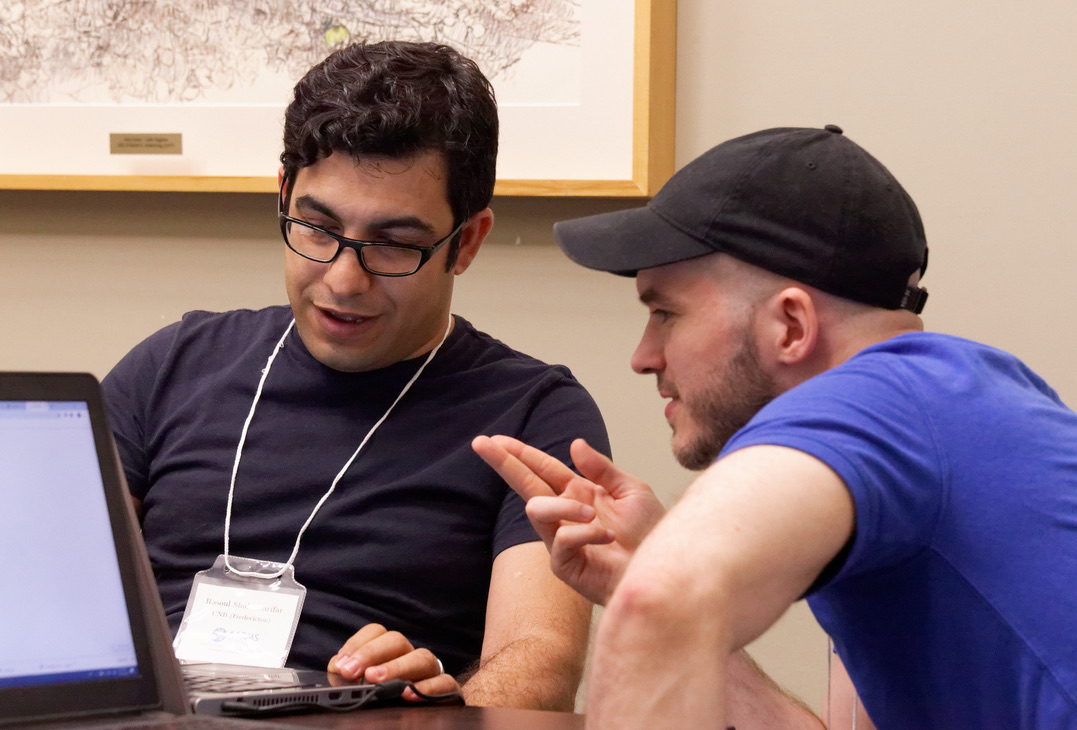
Three of the problems this year had a strong focus on health data analytics. For example: The New Brunswick Department of Health was looking for ways to automatically detect medicare billing errors, which could save the province millions of dollars a year. Healthcare Simulations Inc was trying to address the difficult problems of conducting health data research in a manner that maintains patient privacy by leveraging artificial intelligence to generate simulated data sets.
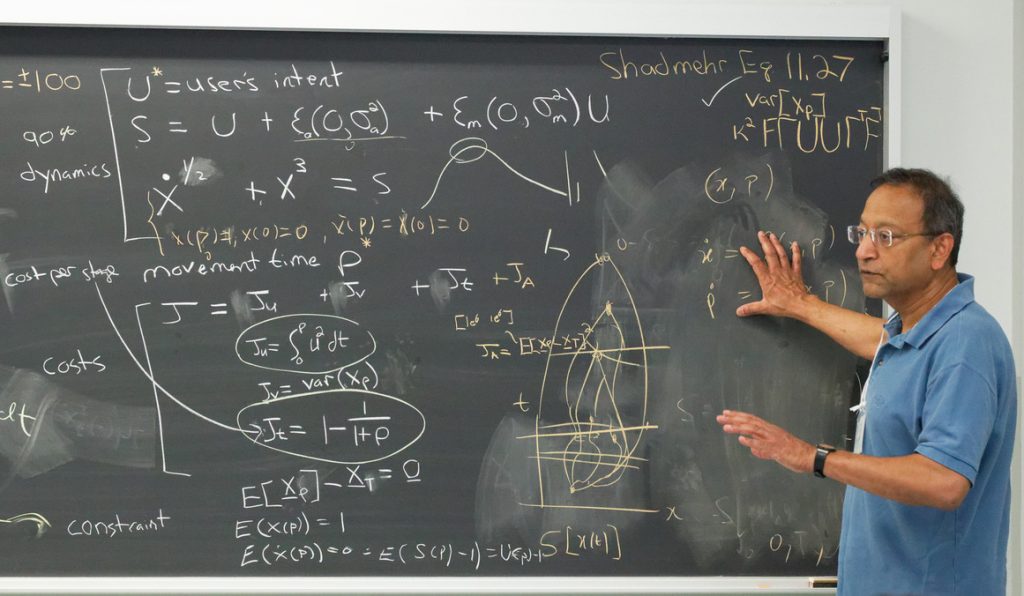
Another problem involved the accurate simulation of traffic in small cities are rural area. This was presented by the Black Arcs, who were making their second appearance at an AARMS IPSW. The Institute of Biomedical Engineering from UNB challenged students devise a control system for prosthetic limbs that faithfully mirrors the user’s intent.
While students made excellent progress on all the problems, a couple of teams really stood out. One of these was the runner-up for the “Best Solution” competition. The problem was presented by The New Brunswick Health Council, and focussed on leveraging large scale survey data into a community sickness index that could be the basis of evidence-based allocation of health resources. Students managed to quantitatively identify the most important survey variables that predict general health, which is the most important step towards constructing a sickness index.
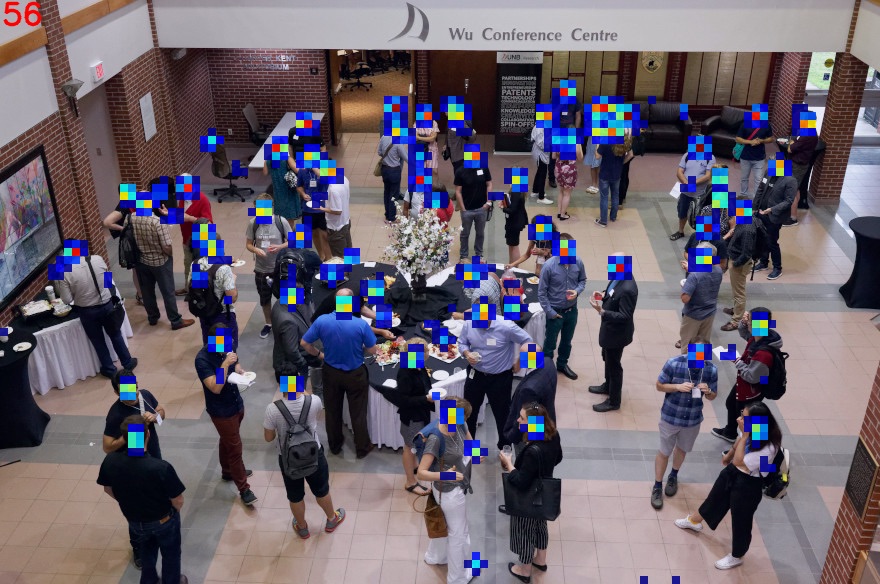
The winning problem was presented by Patriot One. Student were tasked with developing machine learning algorithms that automatically estimate crowd size from still images and video footage. The team, mentored by Moulay Akhloufi from Universite de Moncton and Nicholas Touikan from UNB, successfully developed code to count people from image sources where individual heads can be seen.
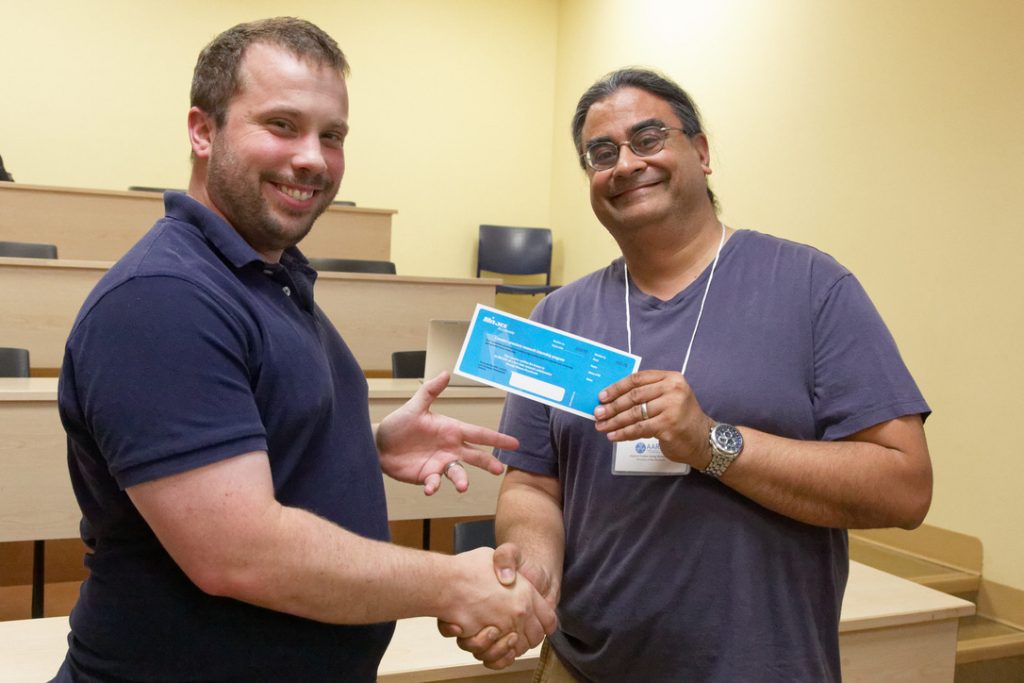
Like IPSW 2018, AARMS also hosted a mathematical sciences focussed academic-industrial connector during the IPSW called “Formulating Success”. This event featured 28 flash presentations from researchers, companies, non-profits, and funding agencies on mathematical and statistical problems and projects. Both the connector event and IPSW as a whole have spawned numerous new collaborations between Atlantic Canadian mathematical sciences researchers and non-academic organizations.
AARMS would like to sincerely thank the many sponsors of the 2019 IPSW: the Atlantic Canada Opportunities Agency (ACOA), ACEnet, CANSSI, Mitacs, the New Brunswick Innovation Fund (NBIF), Springboard Atlantic, the UNB School of Graduate Studies, the Fields Institute, and PIMS. The support of these organizations was crucial to the success of this event. Planning is already underway for the 2020 IPSW to be hosted by Acadia University.
